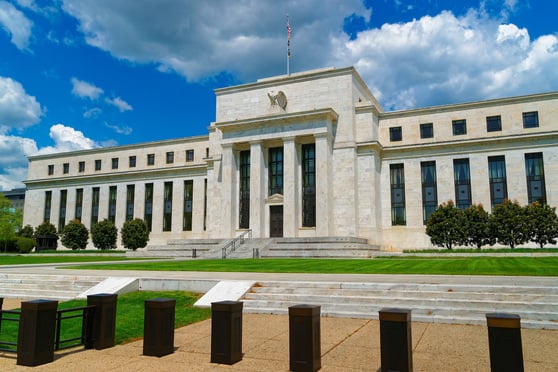
MBA, real estate agents and home builders send a plea for a message that rate increases and securities sales are suspended.
Trade groups representing mortgage bankers, real estate agents and home builders are asking the Fed to send a signal that they’ve topped out on rate hikes and won’t continue their sell off of mortgage-backed securities until rates return to normal.
The letter was sent Monday by the Mortgage Bankers Association (MBA), the National Association of Realtors (NAR) and the National Association of Home Builders (NAHB).
The groups tell the Fed their letter is “to convey profound concern shared among our collective memberships that ongoing market uncertainty about the Fed’s rate path is contributing to recent interest rate hikes and volatility.”
“This has exacerbated housing affordability and created additional disruptions for a real estate market that is already straining to adjust to a dramatic pullback in both mortgage origination and home sale volume. These market challenges occur amidst a historic shortage of attainable housing,” the letter said.
The MBA reported rates for 30-year fixed mortgages reached 7.53% in the week ending Sept. 29, the fourth week in a row of increases.
“Mortgage rates have now reached a 23-year high, dragging application activity down to a low last seen in 1996,” the letter said. “The speed and magnitude of these rate increases, and resulting dislocation in our industry, is painful and unprecedented in the absence of larger economic turmoil.”
The letter asked the Fed to tell the market it “does not contemplate further rate hikes,” and that it will not sell off any more of its mortgage-backed securities “until and unless the housing finance market has stabilized and mortgage-to-Treasury spreads have normalized.”
The letter said those messages from the Fed will provide more certainty to the market and help protect the housing market, which it said accounts for 16% of gross domestic product. The Federal Open Market Committee’s next two-day meetings end Nov. 1 and Dec. 13.
The letter cited the historically high spread between 30-year mortgage rates and the 10-year Treasury yield, “signaling deep-seated uncertainty about where the Fed is headed” and costing borrowers more on mortgages.
The letter said the current spread means borrowers are paying at least 120 basis points more than they would than if the spread was at long-term averages. For a $300,000 mortgage, the cost is an extra $245 per month.
“Further rate increases and a persistently wide spread pose broader risks to economic growth, heightening the likelihood and magnitude of a recession,” the letter said. “We urge the Fed to take these simple steps to ensure that this sector does not precipitate the hard landing the Fed has tried so hard to avoid.”
The Fed has raised rates from near zero at the start of 2022 to just over 5% this summer in its efforts to reduce inflation to its long-term goal of 2% per year.
However, the letter said high rates are a major contributor to inflation for shelter.
“The most effective approach to tame shelter costs, and assist on the broader inflation fight, is to facilitate the construction of attainable, affordable housing,” the letter said. “Sustained wide spreads or further increases in interest rates make this economic goal more challenging by limiting lot development and home construction, exacerbating housing supply, and pricing out millions of households from the goal of homeownership.”
The MBA’s Sept. 18 forecast showed lenders originated $1 trillion in purchase mortgages from January through September, down 22% from the first nine months of 2022. Refinances fell 61% to $239 billion.
For the fourth quarter, the MBA said it expects $358 billion in purchase originations, up 7.6% from a year earlier, while refinances will rise 21% to $82 billion.
For next year, it said it expects purchase originations will rise 12% to $1.52 trillion, while refinances rise 65% to $531 billion.
Greg Mesack, NAFCU’s SVP of government affairs, said Tuesday NAFCU would not comment on what the Fed should do, saying the group lacks all the data and resources the Fed employs to make rate decisions.
However, Mesack said NAFCU’s “general approach is not to tell the Fed how to do its job.”
“We’ll react to decisions they make and help credit unions deal with the impacts of those decisions. But we’re not going to try to tell the Fed what is the optimal rate for the United States economy. That’s a little bit outside of NAFCU’s purview,” he said.






